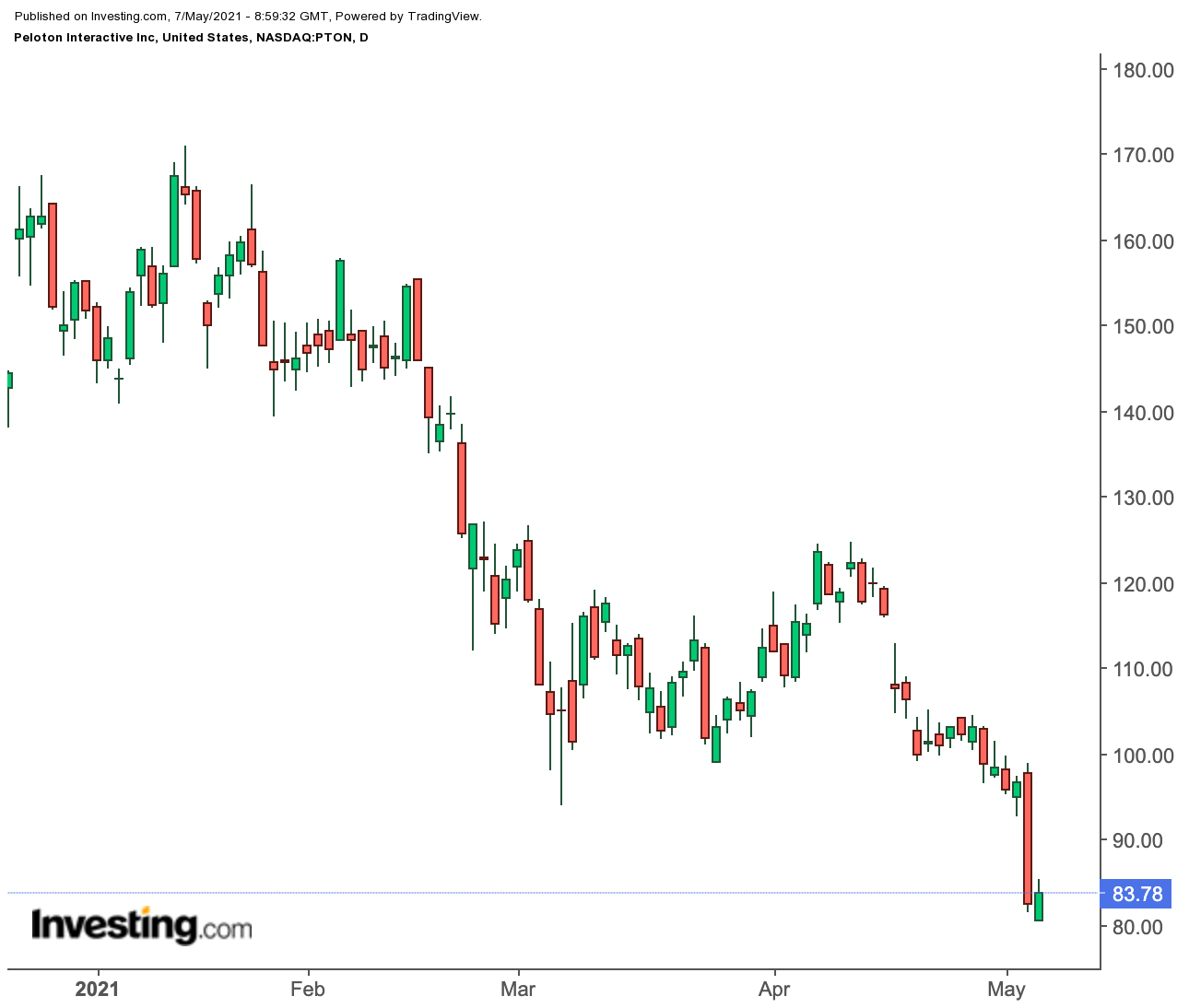Peloton Interactive (NASDAQ:PTON) is in the news for all the wrong reasons these days. Shares of the technology-based fitness company are plunging after the company announced plans to recall its high-growth treadmills after dozens of injuries and at least one death.
The announcement, made Wednesday by CEO John Foley in a joint statement with the Consumer Product Safety Commission, sent its once high-flying shares tumbling more than 14%, adding to a 50% decline since January’s record high of $171.09. This dramatic downfall comes after a remarkable year for this New York-based company.

Its stock surged more than 500% in 2020, as sales of its home-fitness equipment soared during the COVID-19 pandemic, which forced many gyms across the US to closed. Peloton, which beat every stock in the Russell 1000 index last year except Tesla (NASDAQ:TSLA) and Enphase Energy (NASDAQ:ENPH), became a symbol of fitness for millions of people stuck in their homes.
But after the failure of one of its the fastest growing products, executives will have to show how they will control the damage to the company’s brand and dent to its sales, especially now that gyms are reopening to full capacity around the US.
For investors, the big question is whether this is the right time to buy PTON stock after this sharp pullback. The company, best known for its stationary bikes and music-pumped virtual classes, reported earnings yesterday. Revenue for the quarter was up from $524.6 million a year ago to $1.26 billion, driven by strong demand for its remote workout classes and at-home fitness equipment during the global coronavirus pandemic.
The company predicted that recalling and stopping sales on its two types of treadmills will cost $165 million in the current quarter. It also lowered its sales and profit forecasts for the full year ending June 30. At this point, management were unsure when the treadmills will return to the market, but they said that demand for its cycle product, which accounts for the majority of its business, remains strong.
Divided Analysts
In earnings calls with analysts over the past several months, Peloton executives highlighted the importance of its cheaper treadmill products, saying that they could eventually be a “rocket ship” for the company. Credit Suisse in a note on Thursday defended the company’s long-term appeal despite the treadmill setback.
“For some, dealing with product returns, software updates and manufacturing changes could be complicated. Peloton’s investments and vertical integration are ideal for dealing with this type of issue (logistics, Precor, etc.),” the firm said, adding that the repair “does not appear complicated.”
The firm has an outperform rating on Peloton, with a $164 target on the stock, which is nearly 100% above where shares closed on Wednesday.
Still, Peloton’s sudden U-turn has divided analysts, with Baird and Stifel saying the selloff was an overreaction, while Bank of America slashed its rating on the stock in the wake of the recall.
Of the 29 analysts tracked by Bloomberg that cover Peloton, all but five were recommending investors buy the stock ahead of Wednesday’s news. The consensus price target for the stock remains around $160 a share.
Bottom Line
Peloton stock is likely to remain under pressure in the short term as investors focus on the damage caused by the treadmill setback. That negativity, according to many analysts, is a buying opportunity for long-term investors, given the company’s strong share in the home-fitness market, its superior technology and its first-mover advantage.
